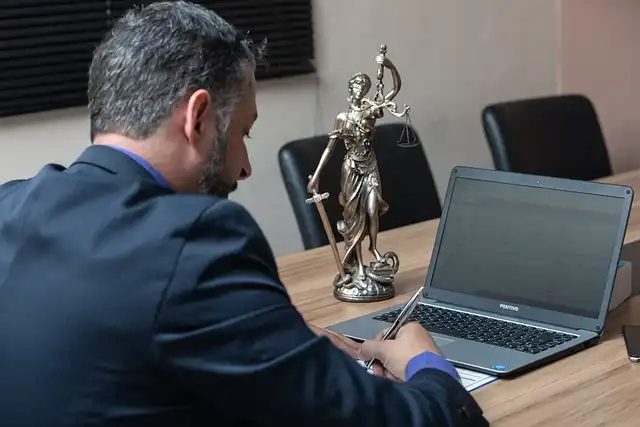The Widow: Grisham’s Legal Thriller, Morality, and Justice

John Grisham's 'The Widow' explores legal corruption, morality, and the blurred lines between victim and criminal. Simon, a lawyer, faces unexpected challenges in this gripping whodunnit mystery. Justice is served with a twist.
While Grisham’s previous books have regularly criticised the legal system, his personalities have had the ability to use loopholes or different reasoning to affirm the idea that justice is ultimately constantly feasible.
Grisham’s Critique of the Legal System
As a person with a history in regulation, I was pleasantly surprised to see Grisham highlighting how the procedural delays and administration of the legal system can mentally affect even those that are most accustomed to it, such as judges, defence legal representatives and The Widow’s lawyer-defendant.
Going a step further, theorists in the Important Lawful Researches movement insist that the regulation informs tales about itself to sustain its legitimacy. French theorist Michel Foucault believed that legal procedures usually create oppression as opposed to stop it, because power generates the discussion that justifies it. In his sight, the law was not neutral yet built with power relationships.
Prospective for modification gets here when Eleanor Barnett, an 85-year-old widow without family members, pertains to his workplace in rural Virginia to safeguard a new will and asserts she is remaining on a US$ 20 million (₤ 149 million) ton of money. Eleanor turns over oversight of her estate to Simon, whose new preparing of her will ensures he will gain lawful charges of US$ 500 per hour when the will is ultimately brought to probate.
Simon Latch: Lawyer in Crisis
Our protagonist is Simon F. Latch, a working-class legal representative that covers routine legal matters such as personal bankruptcy and wills. Simon deals with prohibited gaming and a fondness for alcohol, which intensifies his already having a hard time marriage and barely successful lawful technique.
Not just is Eleanor not entirely blameless in her conduct, Simon is not entirely malicious. He likewise has regular questions about his will certainly drafting which, though ethically suspicious, is technically legal.
This article features references to publications that have actually been consisted of for editorial reasons, and may contain web links to bookshop.org. If you click among the links and go on to get something from bookshop.org The Discussion UK might make a compensation.
While an important reader might consider this a hassle-free plot device that maximizes the present boom in mystery books, it becomes an astute acknowledgment that, often, order must be broken to prevent condition. As investigator, Simon turns to illegal computer hackers and convinces an old friend to clandestinely make use of FBI resources to discover the identity of truth awesome. The effects is that in some cases you have to fight fire with fire.
Looking for something great? Puncture the sound with a thoroughly curated option of the current launches, real-time occasions and events, right to your inbox every fortnight, on Fridays. Sign up below.
The Widow: A Moral Enigma
The Widow marks a key separation in Grisham’s reasoning by suggesting that option, prohibited or non-legal activity is occasionally needed. Simon realises that lawful understanding has its limits and instead represents detective to remove his name.
As an old girl who is seen by culture as prone, Eleanor is the perfect victim, whereas as a legal representative– a career marked by negative sterotypes like opportunism, avarice, adjustment and lack of reliability– Simon is hardly the version of an excellent victim.
Simon is detained and attempted for a criminal offense he really did not devote. Not only is Eleanor not entirely blameless in her conduct, Simon is not completely malicious. Going a step better, philosophers in the Essential Lawful Research studies movement insist that the law tells tales about itself to maintain its authenticity. As investigator, Simon transforms to prohibited computer hackers and convinces an old good friend to clandestinely make use of FBI resources to reveal the identity of the true killer. The story’s final thought seems rushed and oddly removed given the emotional trip viewers have actually been on with Simon.
Simon sneaks deeper right into Eleanor’s life by secretly taking her out to lunch, then begins to take control of her personal events– all the while keeping her wealth a key. Yet when Eleanor dies under suspicious conditions after being in a cars and truck mishap, Simon unexpectedly locates himself in the dock for murder.
Victimhood and Justice: A Deeper Look
Such questions of victimhood lie at the heart of John Grisham’s brand-new story, The Widow. Guide is marketed as a classic Grisham court drama with the enhancement of a whodunnit-style enigma– the author’s initial venture right into this category.
Considered that the “whodunnit” aspect kinds less than a quarter of the overall publication, its result is eventually limited. The adjustment of approach is instead sudden, and secret fans may really feel shortchanged in terms of the variety of clues Grisham provides. Also, the story’s verdict seems hurried and curiously detached offered the psychological trip readers have been on with Simon.
As ever before, Grisham’s motif of legislation as a corrupt system is omnipresent. Simon is arrested and pursued a crime he really did not dedicate. The cops stop examining now they have their man and have retrofitted him with the crime.
Is there such a point as the “perfect victim”? And where does a hoggish legal representative, excited to benefit from a senior widow’s demise, fit in?
While The Widow may not satisfy visitors seeking a firmly woven enigma, it rewards those who have an interest in the dirty overlap between law and morality. By providing us a suspect who isn’t totally guilty, the unique deconstructs our presumed binaries of excellent versus evil, target versus criminal, and innocence versus regret. In doing so, it advises us that, occasionally, the only means to make it through the system is to overturn it.
While a severe criminal conviction can certainly deny a person of their liberty, also prior to the test phase Simon is shown to have lost his pals, personal privacy and livelihood. The ripple effect of notoriety is felt by his children as well, who are forced to move with their mommy to a faraway town to leave press breach.
1 crime fiction2 John Grisham
3 legal system
4 legal thriller
5 morality
6 The Widow
« Johannesburg’s Migrant-Driven Economy: An Inland PortColour Your Streets: Hyperlocal Coloring Books for All Ages »
